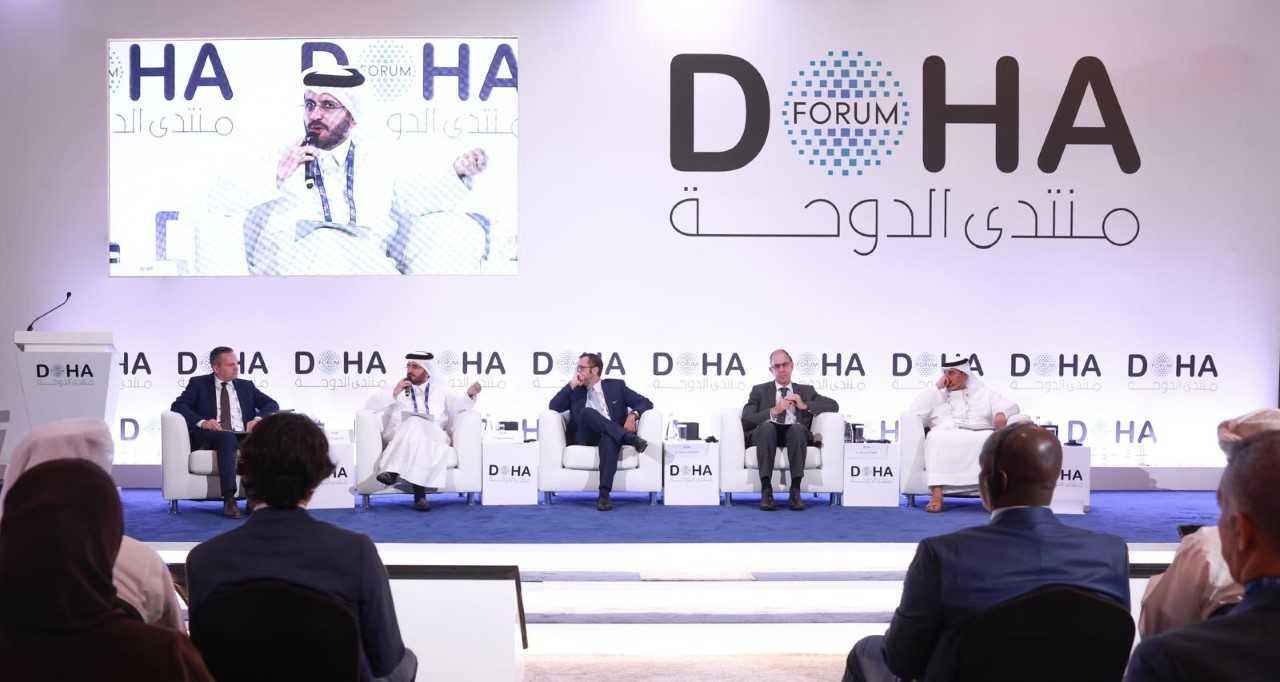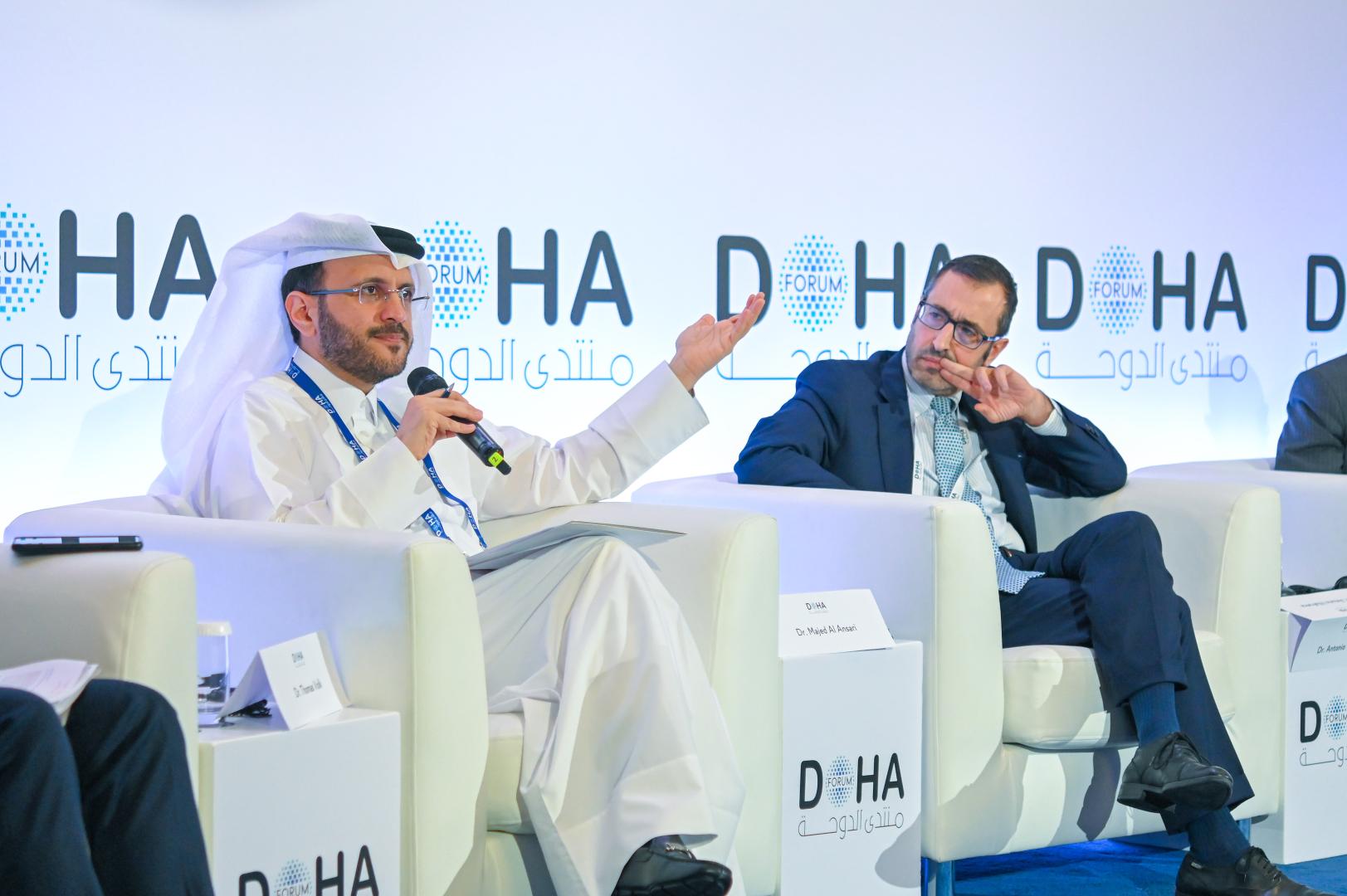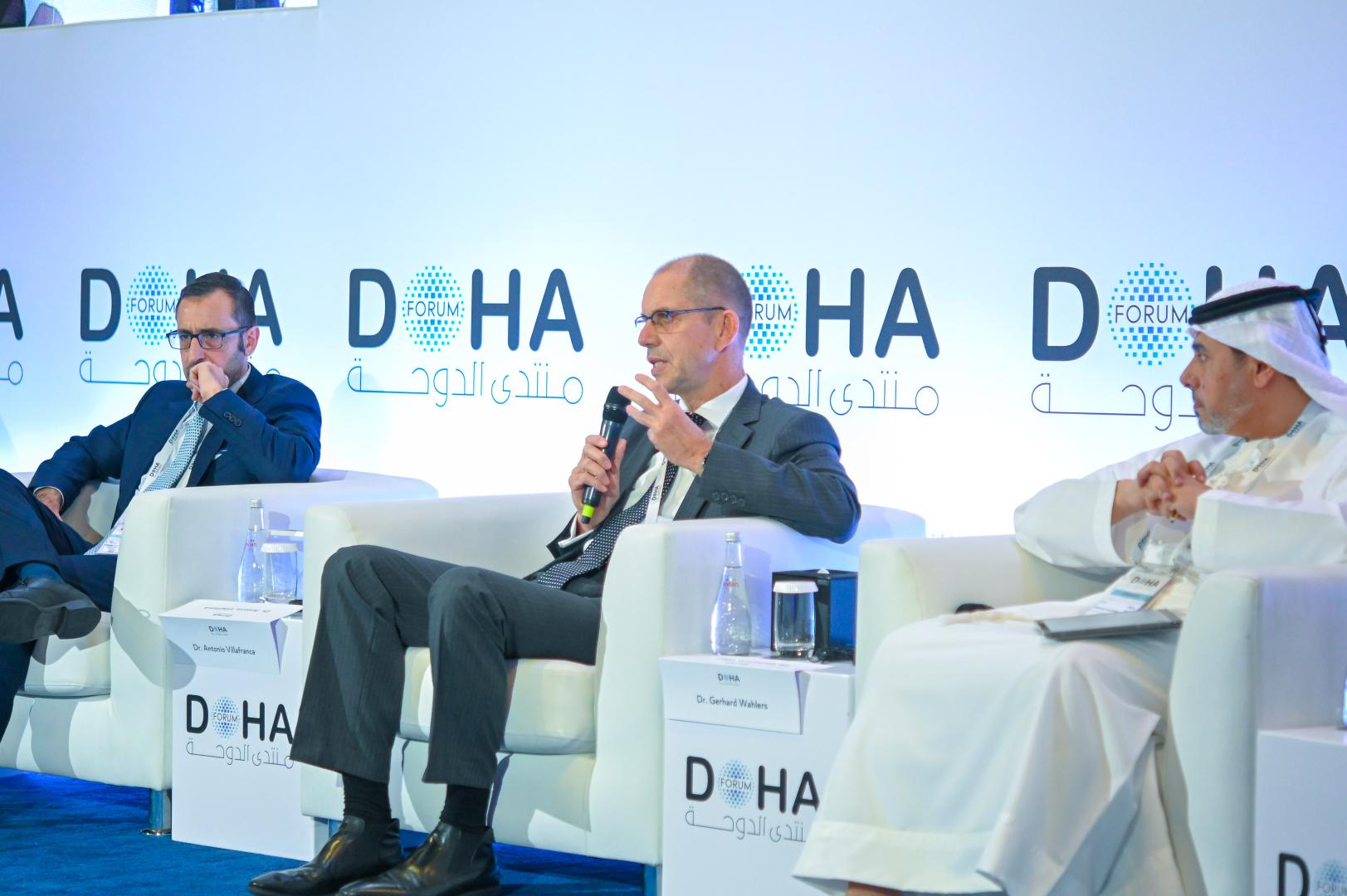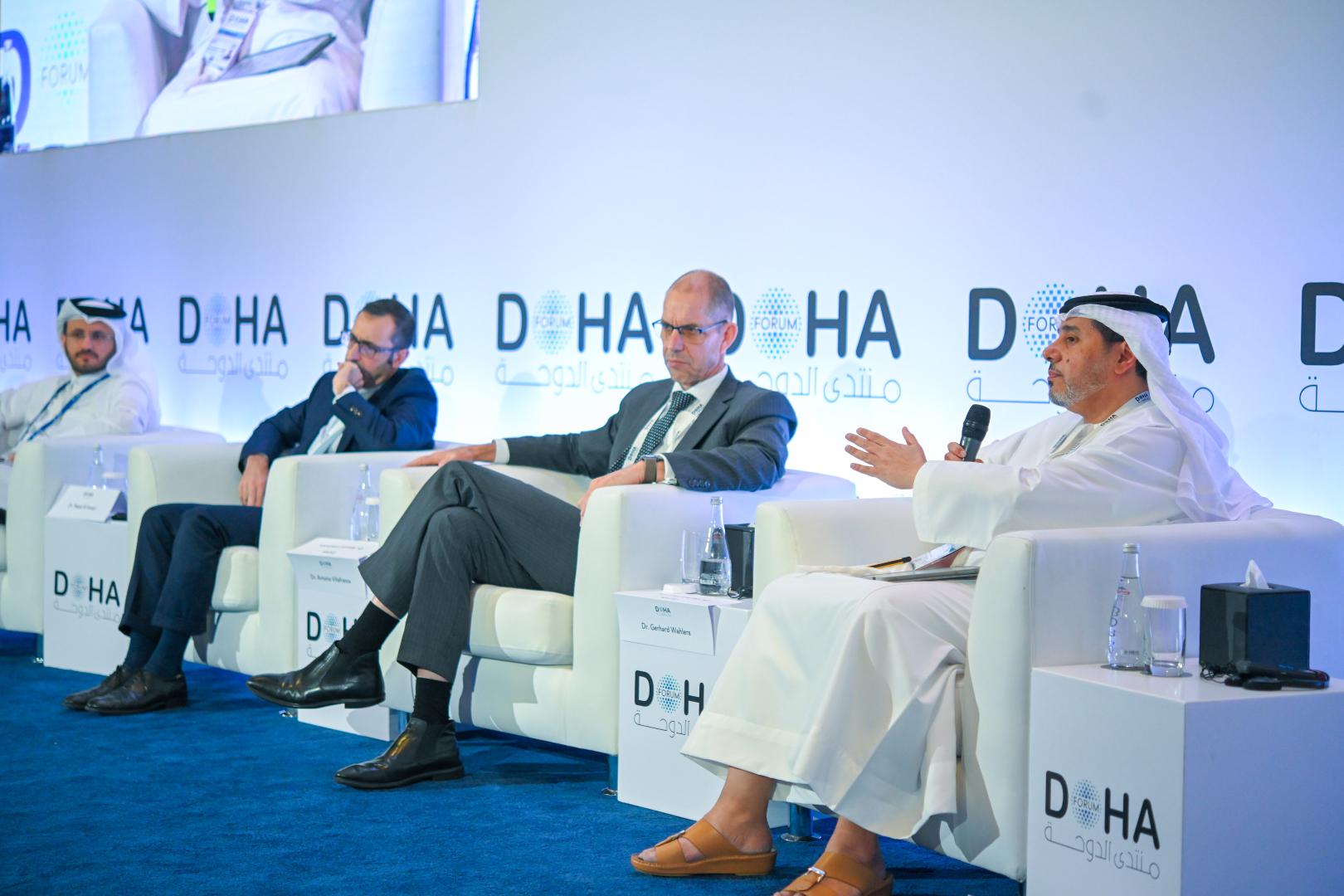The panel, titled “Transformative Diplomatic Strategies for Contemporary Geopolitical Challenges,” organised in cooperation with the Center for International Policy Research (CIPR) in Qatar, and the Institute for International and Political Studies (ISPI) in Italy, discussed innovative methods to navigate the growing multipolar diplomatic landscape.
The panel brought together an array of leading experts including H.E. Dr Majed Al Ansari, the Advisor to the Prime Minister and the Official Spokesperson for Qatar’s Ministry of Foreign Affairs, Dr Gerhard Wahlers, Head of the Department of European and International Cooperation at KAS, Dr Antonio Villafranca, Vice President of ISPI and Mohammed Baharoon from the Dubai Public Policy Research Center (b’huth) and was moderated by Dr Thomas Volk, Head of Middle East and North Africa department at KAS.
A central theme emerged around the increasingly interconnected nature of modern conflicts. H.E. Dr Ansari emphasised that conflicts today are inherently international, transcending local boundaries. He highlighted that despite the geographical distance, Qatar plays a central role in the mediation efforts of the Palestinian-Israeli conflict, noting that Qatar’s involvement in conflict resolution stems from a commitment to international peace.
The discussion took an important turn when Dr Wahlers provided substantial insights into Germany’s innovative approach to international diplomacy through non-state actors such as political foundations. He explained how KAS operates with a unique dual mandate of receiving state funding whilst also maintaining its independence from official diplomatic channels. He highlighted how over 100 offices worldwide have proved to be more resilient than official channels, particularly during times of strained diplomatic relations.
The panel concluded with Mohammed Baharoon, who addressed the UAE’s strategic approach to regional diplomacy. He emphasised how the Gulf States can leverage their unique position and resources to facilitate dialogue and cooperation, particularly in addressing regional challenges.
The panel underscored how modern global crises require diverse approaches, from state-level engagement to the important role of research institutions and political foundations. The discussion also showcased how productive dialogue can emerge from international institutional cooperation, pointing toward innovative solutions for the future of global conflict mediation and resolution.












